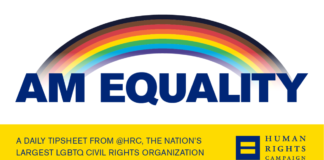
While general recognition and support for LGBTQIA+ identities have increased in recent years, stigma and ignorance have yet to disappear. Even before transphobia, homophobia, and hate crimes enter the picture, microaggressions can do plenty of damage, such as:
- describing transgender people as “confused”
- failing to acknowledge genders other than male or female
- brushing off sexuality as a “phase”
It may come as little surprise, then, that many LGBTQIA+ people in the United States live with mental health concerns:
- According to a 2015 survey, compared with heterosexual adults, LGB adults have more than two times the risk of developing mental health symptoms.
- According to a 2019 report, compared with cisgender adults, transgender adults have almost four times the risk of mental health symptoms.
- According to the
Centers for Disease Control and Prevention (CDC) , LGB teens report symptoms of depression at more than two times the rate of heterosexual teens. - According to 2020 research, compared with cisgender LGBQ and questioning teens and young adults, trans and nonbinary youth have an even higher risk of depression and suicidal thoughts.
When it comes to addressing these concerns, therapy can have a lot of benefit. But as the Human Rights Campaign notes, many LGBTQIA+ people also lack access to health insurance, not to mention mental healthcare.
That’s where online therapy services, like Pride Counseling, can be a big help.
Pride Counseling is an online therapy service that aims to provide accessible, affirming mental healthcare to all LGBTQIA+ people in need of support.
It should go without saying, but we want to emphasize that LGBTQIA+ people don’t automatically need therapy on the basis of identity alone.
Identity and sexual orientation are part of who you are, not something you need to change or get help for.
You might consider therapy for the same reasons anyone else would:
That said, you could also need support with discrimination or other issues related to your identity:
- homophobia and bullying at school, work, or in your community
- rejection from family members and other loved ones
- gender dysphoria
No matter your reason for seeking therapy, you’ll typically have better success when you have a good working relationship with your therapist. To put it another way, it helps to have a therapist you can trust *not* to:
- privately look down on what they consider your “lifestyle choices”
- guide you toward socially sanctioned binary gender roles
- assume the gender of your romantic partner based on your gender
- misgender you every session
Pride Counseling helps you avoid this stigma and judgment by connecting you with mental health professionals who provide inclusive, affirming support. They won’t just acknowledge your identity — they’ll offer compassion and acceptance.
Here’s what to know about getting started with Pride Counseling.
Signing up
First, you’ll fill out a short questionnaire, giving information about your:
- identity and pronouns
- sexual orientation
- current mental and physical health status
- religion or spirituality
The survey also asks whether you’re currently experiencing anxiety, depression, chronic pain, or thoughts of suicide.
After completing the survey, you can then create your account to use the site.
Therapist qualifications
The service does its best to match you with the right therapist for your needs by taking your questionnaire answers into account.
Pride Counseling therapists include:
- marriage and family therapists
- licensed professional counselors
- social workers
- psychologists
These professionals all have at least 1,000 hours of clinical experience, plus current licenses and certifications. While not all therapists at Pride Counseling identify as LGBTQIA+ themselves, all have chosen to specialize in supporting LGBTQIA+ individuals in addition to their other areas of specialty.
Although you can’t choose your own therapist at Pride Counseling, you can request a new therapist if you’re matched with someone who doesn’t feel like a good fit.
Trying to decide whether a therapist is right for you? Our guide can help.
Therapist areas of expertise
Therapists at Pride Counseling offer support for a variety of mental health and emotional concerns, including:
That said, you don’t need to have any specific mental health symptoms to benefit from therapy. If you simply want to talk through life challenges or everyday issues with someone who offers compassion and understanding, a good therapist can help.
Privacy considerations
Your personal information, plus anything you say in therapy, will remain private with a few exceptions, such as:
- a plan to harm yourself or someone else
- ongoing abuse, intimate partner violence, or neglect of a vulnerable person, like a child, older adult, or someone with a disability
- a court order for your information
Since Pride Counseling doesn’t work with insurance companies, the service won’t share your details with these outside parties.
Other key features of the privacy policy:
- You can digitally “shred” any messages you want to remove from your therapy account.
- Therapy databases, which include your messages, are both encrypted with banking-grade encryption and scrambled in the event of outside access.
- Pride Counseling’s encryption system uses current best practices.
- Server distribution provides additional security.
Pride Counseling charges a weekly subscription fee, but you’ll only be charged once every 4 weeks.
This cost varies from $60 to $90 per week, depending on factors, like:
- your location
- your income
- available therapists in your area
- your preferences for therapy
There’s no commitment to keep using the service, so you can cancel your subscription online any time you choose. There’s no need to make a phone call.
If cost remains a barrier, several reviews mention that Pride Counseling may provide some income-based financial assistance, so it may be worth reaching out about this option.
Pride Counseling doesn’t accept insurance.
Some insurance plans may offer some reimbursement for online therapy services, but many won’t.
Keep in mind, too, that Pride Counseling doesn’t provide specific diagnoses or work with insurance companies.
Since insurance companies that do offer full or partial reimbursement for therapy often require a diagnosis and other treatment information first, this could get in the way of any potential reimbursement.
While online therapy might not work for everyone, research generally supports its effectiveness:
Research from 2013 considered 70 studies on telemental healthcare. The review authors concluded that online therapy increased access to mental health support and seemed to have benefit as an effective treatment approach.Research from 2017 considered 25 studies on telemental healthcare. The review authors concluded that online therapy can be an effective approach to treatment, especially in rural or isolated areas, with the added benefit of increased affordability.Research from 2018 suggested LGBTQIA+ youth show particular interest in affirming, inclusive options for online mental health support. Accessible online therapy could, in some cases, make it easier for LGBTQIA+ young adults to access care.
One major benefit of online therapy? You can access care no matter where you live.
Perhaps you live in a smaller town with limited therapy options, or you feel uncomfortable sharing your identity with local therapists. Online therapy platforms, like Pride Counseling, help you find support without fear of rejection or bias.
As for real people who use Pride Counseling? Reviews suggest they’re pretty satisfied. The service has an overall rating of 4.6 (out of 5) stars in Apple’s App Store.
Reviewers praise:
- app features, like journaling, goal tracking, and worksheets
- therapist responsiveness and effectiveness
- easy-to-use app interface
While a few users reported a negative experience with the therapist assigned, many people said they were matched with a great therapist the first time and reported a positive therapy experience overall.
A few people didn’t love the service, though:
- Some people found it too expensive, even with financial aid.
- Others emphasized that, while you can send as many messages as you’d like with your therapist, they’ll only respond when they’re available.
- Session scheduling also depends on therapist availability, and not all therapists can offer a session at a time that works for you each week.
- Several reviewers also expressed disappointment that Pride Counseling therapists couldn’t offer support for the concerns they wanted help with.
Pride Counseling can help if you’re hoping to get support and guidance for:
- coping with day-to-day stress and life challenges
- exploring life goals or major changes
- navigating relationship or parenting challenges
- making positive changes to improve your quality of life
Pride Counseling won’t be the right fit if you:
- are under the age of 18
- have frequent thoughts of suicide or need immediate crisis support
- need a mental health diagnosis for insurance or other purposes
- want to try treating your symptoms with medication
- have symptoms of psychosis
Keep in mind: While Pride Counseling can offer individualized support with relationship concerns, the service doesn’t provide couples counseling.
Get more details about online options for couples therapy.
If any of the above describe your current situation, it’s typically best to consider:
A society still having a hard time pushing off the restrictive blanket of heteronormativity doesn’t always make it easy to be LGBTQIA+. But compassionate support from an understanding therapist can go a long way toward improving emotional well-being, not to mention your outlook.
If you’re in the United States, Pride Counseling can help you connect with a therapist who specializes in working with people who identify as LGBTQIA+. Explore what Pride Counseling has to offer here.
Crystal Raypole writes for Healthline and Psych Central. Her fields of interest include Japanese translation, cooking, natural sciences, sex positivity, and mental health, along with books, books, and more books. In particular, she’s committed to helping decrease stigma around mental health issues. She lives in Washington with her son and a lovably recalcitrant cat.








